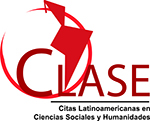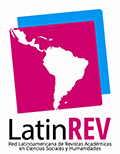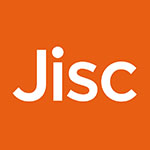Social protection systems in the face of the COVID-19 crisis
Analysis of cash transfer policies in Mercosur countries based on the theory of universal citizen income (2020-2021)
Abstract
In the aftermath of the COVID-19 pandemic, cash transfer policies (CTPs) have returned to a central role in social protection schemes in various corners of the world. Latin America was no exception, as it was the scene of the expansion of pre-existing transfers and the creation of new measures implemented in light of the crisis. In this context, several of the debates on universal citizen's income (UCI) were taken up again. Based on the interdependence and vulnerability exposed by the recent crisis, various organizations and agencies expressed their positions on these proposals. However, there are important differences between the theoretical postulates of UCI and the characteristics of OCTs. Therefore, this thesis focused on characterizing and analyzing the MTPs implemented during the period 2020-2021 in the 4 member countries of the Southern Common Market (MERCOSUR) based on a systematization of the postulates of the most recent theory of the UCI, in order to determine their degree of adequacy.
Downloads
References
Alvaredo, F., Chancel, L., Piketty, T., Saez, E. y Zucman, G. (2017). Global inequality dynamics: New findings from WID.world. American Economic Review, 107(5). https://doi.org/10.1257/aer.p20171095.
Autor, D., Mindell, D. A. y Reynolds, E. B. (2022). The Work of the Future. https://doi.org/10.7551/mitpress/14109.001.0001. MIT Press.
Autor, D. y Salomons, A. (2018). Is automation labor share-displacing? Productivity growth, employment, and the labor share. Brookings Papers on Economic Activity, (Spring 2018), 1-63. https://doi.org/10.1353/eca.2018.0000.
Ahmed, N., Marriott, A., Dabi, N., Lowthers, M., Lawson, M. y Mugehera, L. (2022). Las desigualdades matan. Oxfam Internacional. https://www.oxfam.org/es/informes/las-desigualdades-matan.
Basic Income Earth Network. (2016). The Basic Income Earth Network’s definition of basic income since the GA 2016. https://basicincome.org/wp-content/uploads/2020/07/Basic-Income-definition-longer-explanation-1.pdf.
Castel, R. (1997). La metamorfosis de la cuestión social. Paidós.
Castro, L. G. y Mediavilla, M. (2022). Políticas Públicas Focalizadas en Latinoamérica: Revisión de los Programas de Transferencias Monetarias Condicionadas. International Review of Economic Policy-Revista Internacional de Política Económica, 4(2). https://doi.org/10.7203/irep.4.2.25798.
Cecchini, S. y Atuesta, B. (2017). Programas de transferencias condicionadas en América Latina y el Caribe: tendencias de cobertura e inversión. CEPAL.
Cecchini, S. y Madariaga, A. (2011). Programas de transferencias condicionadas. Balance de la experiencia reciente en América Latina y el Caribe. CEPAL.
Comisión Económica para América Latina y el Caribe. (2021a). La paradoja de la recuperación en América Latina y el Caribe. Crecimiento con persistentes problemas estructurales: desigualdad, pobreza, poca inversión y baja productividad. CEPAL. https://hdl.handle.net/11362/47043.
Comisión Económica para América Latina y el Caribe. (2021b). Panorama Social de América Latina 2020. CEPAL. https://hdl.handle.net/11362/46687.
Duru-Bellat, M. (2017). Branko Milanovic, Global Inequality. A New Approach for the Age of Globalization. Lectures. https://doi.org/10.4000/lectures.22236.
Filgueira, F. y Lo Vuolo, R. M. (2021). Las oportunidades de la Renta Básica en América latina frente a la pandemia del COVID-19: vulnerabilidad social y bloqueos estructurales. Revista Internacional de Pensamiento Político, 15, 57-74. https://doi.org/10.46661/revintpensampolit.5593.
Fitoussi, J. P. y Rosanvallon, P. (1997). La nueva era de las desigualdades. Manantial.
Halperin Donghi, T. (1970). Historia contemporánea de América Latina. Revista Española de La Opinión Pública, 20. https://doi.org/10.2307/40181377.
Hobsbawm, E. J. (1962). The age of revolution, 1789-1848. The American Historical Review, 68(4), 1018-1019. https://doi.org/10.2307/1847267.
Hornes, M. E. (2019). Expertos que diseñan el dinero: el caso de los programas de transferencias monetarias. Estudios Sociológicos de El Colegio de México, 38(112), 141-171. https://doi.org/10.24201/es.2020v38n112.1756.
Isuani, E. A., Nieto Michel, D. R. y Nieto, D. (2002). La cuestión social y el Estado de Bienestar en el mundo post-keynesiano. Reforma y Democracia, 22(22).
Lavinas, L. (2014). Políticas sociales en américa latina en el siglo XXI: los programas de transferencias monetarias condicionadas. Desarrollo Económico, 54(212), 3-34.
Lo Vuolo, R. M. (2011). Los programas de transferencias monetarias condicionadas en América Latina y las perspectivas de la renta básica o ingreso ciudadano: un análisis en base a los programas “Bolsa família” de Brasil y “Asignación universal por hijo para protección social” de Argentina. Revista Internacional de Pensamiento Político, 6, 193-222.
Milanovic, B. (2011). A short history of global inequality: The past two centuries. Explorations in Economic History, 48(4), 494-506. https://doi.org/10.1016/j.eeh.2011.05.001.
Piketty, T. (2015). The Economics of Inequality. Harvard University Press. https://doi.org/10.2307/j.ctvjnrtk1.
Prakash, D. y Klotz, A. (2008). Qualitative Methods in International Relations: A Pluralist Guide. Palgrave.
Rosanvallon, P. (2000). The new social question: rethinking the welfare state. Princeton University Press. https://doi.org/10.1515/9781400823482.
Salas, M. y Lopresti, L. (2014). Proceso de legitimación y homogenización de programas de lucha contra la pobreza en América Latina. Estudio de casos de Programas de Transferencias de Ingresos Condicionadas. Anuario de Investigación USAL, (1).
Standing, G. (2011). The precariat: the new dangerous class. Bloomsbury Academic.
Standing, G. y Madariaga, J. (2013). El precariado, una nueva clase social. Pasado & Presente.
Ullmann, H., Atuesta, B., Rubio, M. y Cecchini, S. (2020). Las transferencias monetarias no contributivas: un instrumento para promover los derechos y el bienestar de la población infantil con discapacidad en América Latina y el Caribe. Unicef.
Van Parijs, P. (1991). Why surfers should be fed: The liberal case for an unconditional basic income. Philosophy and Public Affairs, 20(2), 101-131. https://doi.org/10.4324/9781315257563-16.
Van Parijs, P. (1992). Competing justifications of Basic Income. En Van Parijs, P. (Ed.), Arguing for basic income: ethical foundations for a radical reform (pp. 3-43). Verso.
Van Parijs, P. (2004a). Basic Income: A Simple and Powerful Idea for the Twenty-first Century. Politics and Society, 32(1). https://doi.org/10.1177/0032329203261095.
Van Parijs, P. (2004b). Renta Básica: Una idea simple y poderosa para el siglo XXI. Politics & Society, 32(1).
Van Parijs, P. y Vanderborght, Y. (2020). Basic income: A radical proposal for a free society and a sane economy. Ekonomicheskaya Sotsiologiya, 21(1), 44-143. https://doi.org/10.17323/1726-3247-2020-1-44-59.
Vásquez Russi, C. M. y Uribe Gómez, M. (2019). Los estudios sobre los programas de transferencias monetarias condicionadas en América Latina: trayectorias, enfoques y perspectivas sobre la pobreza. Opera, (25). https://doi.org/10.18601/16578651.n25.11
Villatoro, P. (2005). Programas de transferencias monetarias condicionadas: Experiencias en América Latina. Revista de La CEPAL, 2005(86), 87-101. https://doi.org/10.18356/383c898c-es.
World Economic Forum. (2022). The Global Risks Report 2022 (17a ed.). https://tatsigroup.com/fa/wp-content/uploads/2022/02/the-global-risks-report-2022.pdf.
Yanes, P. (2016). ¿De las transferencias monetarias condicionadas al ingreso ciudadano universal? Acta Sociológica, 70, 129-149. https://doi.org/10.1016/j.acso.2017.01.006
Copyright (c) 2024 Joaquín Baliña

This work is licensed under a Creative Commons Attribution-NonCommercial-NoDerivatives 4.0 International License.
This license allows the copy, distribution, exhibition and representation of the work provided authorship is acknowledged and the work is properly quoted. Commercial use of the original work or the generation of derived works are not allowed.
The authors hereby guarantee the right to the first publication of the work to the Revista Política Austral.




































